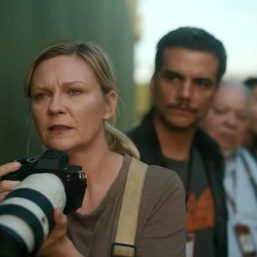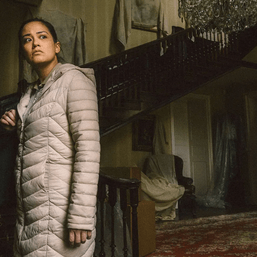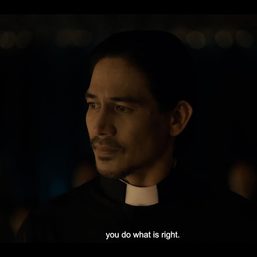SUMMARY
This is AI generated summarization, which may have errors. For context, always refer to the full article.

MANILA, Philippines – A Philippine movie about a grumpy, old, gay man and his faithful dog has become an unlikely hit abroad while shaking the belief that local independent films have to focus on the darker side of life.
The film “Bwakaw” — named after the dog in the movie — is the Philippines’ submission for an Academy Award for best foreign film. While standing little chance of being shortlisted, its heartwarming story is winning rave reviews overseas.
It tells the story of Rene, 70, a villager who only recently realized he was homosexual. Embittered and lonely, he looks forward to his death, only to have Bwakaw, the dog, teach him the value of life.
It premiered at Cinemalaya, a Philippine independent film festival in July, garnering a best actor prize for its star, Filipino actor Eddie Garcia. The film also received the “audience’s choice” award.
It hit the international circuit; Time magazine chose “Bwakaw” as one of 10 films to watch in the prestigious New York Film Festival held in September and October.
Prominent US industry film journalist Nathaniel Rogers called it “a true gem… and an absolutely worthy Oscar submission,” while Slant magazine called it “effervescently original.”
In recent years, Philippine independent cinema has carved out a reputation overseas for powerful, gritty films that often focus on the darker aspects of a country where corruption, poverty and conflict dominate society.
The director and writer of “Bwakaw,” Jun Robles Lana, said he did not want to make a movie dealing with the darker side of Philippine life.
“I didn’t want this movie to depress people. I wanted it to be enjoyable. You go to movies to be entertained and I wanted to retain that appeal. I wanted it to be fun,” he told AFP.
The movie is a tribute to Lana’s mentor, respected playwright Rene Villanueva, who died in 2007 and whom the movie’s lead character is named after.
“I wrote it to honor my mentor so I wanted it to be a celebration of life. In order to balance the tone, it was important for me to include a lot of humor in the storytelling,” he said.
Lana credits both Garcia, who ironically is best known for playing skirt-chasing lotharios, and the dog, a two-year-old mixed breed named Princess, for much of the movie’s success.
It has led to Princess, the dog, getting a starring role in her own fantasy TV soap opera, “Aso ni San Roque” (the Dog of Saint Roch), that now has a huge local following.
Although Lana, 40, has won many literary awards, he is well-versed in the commercial side of entertainment, having written many popular movies and serving as creative director of GMA channel 7.
As creative director, he oversees the production of many soap operas aimed at the masses.
Lana said that his commercial background helped “Bwakaw” stand out.
“It is an independent film but my sensibility as a commercial director also came into play while I was directing this film. I wasn’t just making this film for myself. I was also thinking about entertaining my audience,” he said.
The best known of the Filipino indie directors, Brillante Mendoza, won a Cannes best director prize in 2009 for his film “Kinatay” (Butchered), in which a prostitute is murdered and chopped to pieces by a crime syndicate.
His latest movie to win international acclaim was “Captive” that focused on kidnappings by the Abu Sayyaf, a small band of Islamic militants in the south of the country designated by the United States as terrorists.
Independent filmmaker Pepe Diokno, who won a 2009 Venice Film Festival prize for “Engkwentro” (Clash), a film about street gangs and death squads, said many movie-makers were drawn to the social problems in their country.
But the stereotype that Philippine independent films were just about crime and poverty is no longer true, and “Bwakaw” is just one movie demonstrating their greater scope, according to Diokno.
“‘Bwakaw’ is an example that you can make a film that is not about prostitution and violence and it can find an international audience because it had a good story that really came from the heart,” he said.
The head of the Film Academy of the Philippines, actor-director Leo Martinez, said “Bwakaw” would in all likelihood not have the financial backing for a marketing campaign to get a final nomination for the Oscars.
He said a campaign to secure a nomination would involve sending out at least 1,000 DVDs of the movie to the academy members and putting costly advertisements in US magazines.
“(But) if it is seen, it can be a contender,” he said. – Mynardo Macaraig, Agence France-Presse
Add a comment
How does this make you feel?















There are no comments yet. Add your comment to start the conversation.